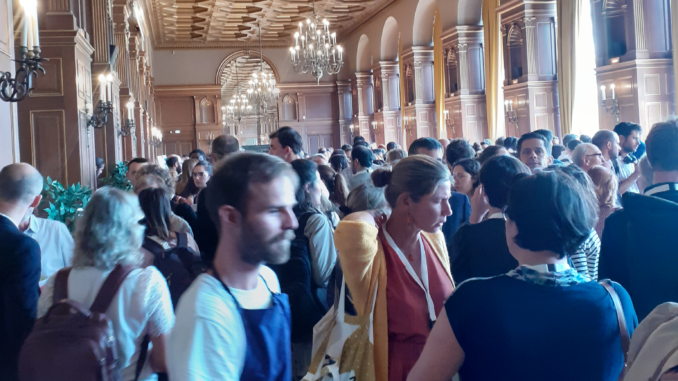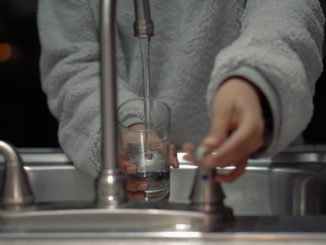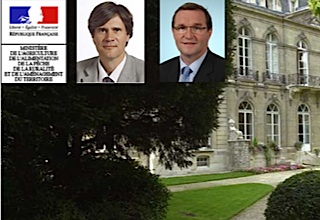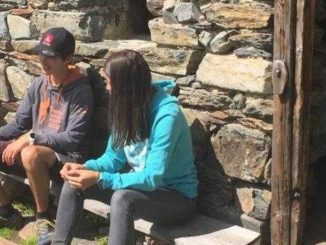
Despite the withdrawal of the Sustainable Food Systems law from the European agenda this autumn, the Rural Resilience project has enjoyed a fruitful and inspiring harvest of sustainable food events, ahead of next week’s European Action Gathering in Marburg.
Because food is much more than a stomach to be filled, actions on the ground in France are focusing on the social barriers to local, healthy food for all. Indeed, social issues are relegated by the European executive to the member states. Marie-Lise Breure-Montagne reports.

Rethinking the restaurant
On 16 September 2023, our partner Alliance des Tables Libres et Vivantes (Alliance of Free Tables) hosted its annual political gathering on the theme: “The End of the Restaurant? Rethinking the traditional model.”
Formerly known as Alliance des cuisinier.e.s, and presided over by Xavier Hamon, the association boasts a 70-strong membership of cooks who create healthy, local and sustainable cuisine. All types of food actors can get behind the simple but powerful idea of shaking up the rules of the food business, from a rural cafe, to a vegetarian deli that delivers by bike (fourchette et bicyclette), and from a canteen in a contested development zone, to a collaborative hospitality platform (les oiseaux de passage). This last is an action-research cooperative which aims to “move from comfort to reassurance”, offering accommodation and catering services to those neglected by the conventional sector : seasonal workers, students and trainees.
Testimonials from the field resonated with the key issues for transition. Carolina Villar Hidalgo set up her restaurant in Bourg-en-Bresse, at the plains near the Jura mountains, nearly a decade ago, with no menus and a loyal following of diners: “At this scale [18 seats] I can manage it all car-free. Every day, I give it my best.”
Concrete proposals included changing the accounting system to trace “purchasing volumes to the local territory”, and more broadly redefining the profession of artisan cook to differentiate it from the practices of the agro-industry. These were summarised in the Alliance’s charter of political demands on display throughout the day.

Mobilising territories
On 10 October, we were at the Carasso foundation’s 4th sustainable food gathering in Cité Universitaire in Paris. Calling for a change of scale by mobilising territories, the event gathered a strong turnout of associations, territories and institutional actors, with 300 in-person participants, and another 1500 who joined online.
In his introduction, Nicolas Bricas, of the UNESCO Chair in World Food Systems, noted a trend: “a shift from the ‘fight against food insecurity’ to the notion of food democracy”. As for the approach to be followed: “it’s easier to encourage dialogue at territorial level than between ministerial silos”.

The impressive programme included a presentation of the work of the Carasso foundation, including a study on New forms of access to quality food for all. One of the speakers also indicated that France’s forthcoming National Strategy for Food, Nutrition and Climate (SNANC) would be published in December 2023 at the earliest.

One of the highlights of the day was the round table discussion on the Right to Food. Two Swiss speakers revealed how COVID-19 exposed the level of poverty in a city as wealthy as Geneva. To build a robust solution, Geneva took inspiration from Montpellier’s social food fund (Caisse sociale de l’alimentation).

Good food, good farming
The Alliance for Agricultural & Food Transitions (ALTAA) held an event as part of the Good Food Good Farming European action days in October 2023.
“For transitions that meet the ecological and social challenges”: this is the founding slogan of the ALTAA network for exchange, cooperation and proposals, created in 2022 and already comprising 230 local and national organisations. Working closely with other networks (Collectif Nourrir and RN- PAT), the network’s priority is to “accelerate the evolution of food environments in order to facilitate the transition towards more sustainable and plant-based diets”.
Among the information provided at these first meetings is the list of 5 pilot projects: the European project Plan’eat kids and its Living Lab (INRAE); the municipal cookery school of the city of Rennes; the town of Mouans Sartoux and its initiatives in the commercial catering sector; the social food security scheme for students in Bordeaux; and the Ménadel system in the Lens Liévin conurbation (financed by Inter-Reg funds).

Whatever the difficulties in Brussels in keeping a firm grip on ‘the fork’, it seems to us that a myriad of nimble little hands are holding the course.
In 2023-2024, the Rural Resilience project embarks on a new phase of joining the policy dots while continuing to nurture what we have built together, and widening the lens from France to Germany and the broader Europe. To learn more, visit the project page, and follow ARC2020 on LinkedIn, Twitter, Facebook or Instagram.
Return to the Rural Resilience project page
More on Rural Resilience
Water as a Common Good .. and climate risks, a common destiny – Part 2/2
Access to Land: Looking to Europe to Secure Local Farmland? Part 1
Access to Land: More Resilient Agriculture – Without Any EU Legislation? (Part 2)
Beyond the Harvest: Health Effects of Pesticides on French Farmers
The True Toll of Pesticides on Rural Health – Pesticides Analysis Part 2
France | Democratising Food Policy – Tweaking The Financial Toolbox
Ernährungsrat: The democratic potential of Food Policy Councils in Germany
Feeding Ourselves 2023 – Building Bridges for Rural Resilience





